PITTSBURGH — Daniel Sonenberg stood at the lip of the stage of the Benedum Center for the Arts and allowed the applause to wash over him. He took several bows, and motioned to the singers who were with him on stage to do the same.
It continued for several minutes, until the curtain finally closed and the audience began its slow exit from the sold-out gilded theater. At the cast party afterward, one of the first things Sonenberg asked was if it had been real. Standing on stage, he said, it felt surreal.
“They seemed to like it,” he said, more a question than a statement.
Yes, Dan, they liked it.
Thirteen years after he began writing an opera about the tragic life of Negro League baseball star Josh Gibson, Sonenberg’s dedication to art and baseball finally paid off on Saturday, when Pittsburgh Opera premiered “The Summer King” in front of a full house at one of the city’s most storied, historic theaters.
It couldn’t have gone better, and Sonenberg, who lives in Portland and teaches music composition at the University of Southern Maine, can now get on with the rest of his life. “The Summer King” is his opus, or what he calls “the defining creative project of my life,” and Saturday’s premiere was “a dream come true, the culmination of a long and sometimes tortured gestation.”
He began working on it when he was 33. He’s 46 now, with three kids and a very different life than when he began the project. On Saturday, there was barely a hint of that long, slow torture. It was all celebration. Dozens of people came down from Portland, including USM President Glenn E. Cummings, the university’s music department director, Alan Kaschub, and other colleagues. A trio of former USM students drove 13 hours to see the opera, then planned to drive another 13 hours back to Maine on Sunday. “I’ve been excited about this since the get-go,” said Sam Chandler, one of the students. “I needed to be here to support Dan.”
His mother came from New Jersey, as did his sister and her family, and Pittsburgh turned out in style to support an opera that commemorates the life of a local sports hero. There were a few empty chairs, but the 2,800-seat house was mostly full. Women wore fancy dresses and men donned tuxedos. Others showed up wearing baseball hats bearing the logo of the Pittsburgh Crawfords and jerseys of the Homestead Grays, the two Pittsburgh-based Negro League teams where Gibson spent most of his baseball career in the 1930s and 1940s.
A lot of people think it should have been Gibson and not Jackie Robinson who broke baseball’s color barrier, because of his on-field skills. A stout catcher, Gibson hit more home runs than Babe Ruth, and, according to legend, hit one ball so hard it traveled clear out of Yankee Stadium.
Gibson died from a stroke in 1947 at age 35, three months before Robinson made his debut with the Brooklyn Dodgers. Gibson helped lead his people to the promised land, but never crossed over. That’s the story Sonenberg tells in “The Summer King.” It’s a tragedy about a flawed character with tremendous skills, whose life took a sour turn when his wife died while giving birth to twins.
There are four more performances through May 7, and the opera will be produced again next year in Detroit.
Sonenberg arrived in Pittsburgh nearly two weeks ago, and spent the days prior to the premiere attending rehearsals and meetings with the creative team, doing interviews and promotional work and generally getting to know Pittsburgh, which has became a second home of sorts. He will be back in Portland this week to teach, then will travel to Pittsburgh again this coming weekend for the final performances.
The experience has been thrilling, he said. “In short, it was amazing, surreal, and electrifying. After all that time imagining the cast, the sets, the costumes – the voices – all of a sudden I was in a building with all of it.”
He spent much of his day Saturday preparing gifts for the cast, with whom he has become close. He arrived at the theater about an hour before curtain feeling triumphant and excited, and uncertain. “It’s a weird feeling,” he said, standing in the crowded lobby. “I think I know what it is, but I don’t really know what it is. We’ll see. The audience is the last layer. We’ll see.”
He’s been so busy, he added, he hardly had time for nerves. “I’m nervous in a very general way. I wouldn’t be human if I wouldn’t be nervous at all,” he said.
Aimee Petrin cried tears of joy during the curtain call, after she saw tears on Sonenberg’s face as he stood at the front of the stage and accepted the audience’s adulation. The executive director of Portland Ovations, Petrin was instrumental in getting “The Summer King” to this point. Portland Ovations raised about $75,000 for a staged concert of the opera in 2014. Based on the promise of that performance, Pittsburgh Opera agreed to produce the show, for which it invested more than $1 million.
In his program notes, Sonenberg dedicated the opera to Petrin and her staff at Portland Ovations. She knew about the dedication in advance, because Sonenberg forwarded a copy of his program notes for her to read. She called the dedication a gift.
“We imagined there would be possibilities for ‘The Summer King’ beyond Portland, but I can’t say we imagined this,” Petrin said.
Among the investors in Petrin’s vision and imagination was Dan Crewe, chairman and president of the Bob Crewe Foundation of Portland. Bob Crewe, who died in Maine in 2014, was a songwriter and producer, best known for co-writing hits with the Four Seasons. His brother Dan operates the family trust, which supports arts-related causes.
Petrin approached him for funding a few years ago, inviting him to a lunch at DiMillo’s with Sonenberg so they could pitch the project.
“I didn’t know anything about it. I had no clue,” Dan Crewe said on Saturday, standing outside the theater. “But I met with Dan, and I was inspired by who he was. I have been in this business forever and had had enough of artists. But I was inspired.”
After the meeting, he told his board he wanted to support the project, and gave Portland Ovations $5,000 for the Portland concert. The foundation gave another $5,000 to Pittsburgh Opera after it committed to produce it.
The success of “The Summer King” reflects well on USM and the School of Music, which already has an excellent reputation regionally and nationally, Cummings said. The university president said it was important to be in Pittsburgh to support Sonenberg. “We’re celebrating Dan. He’s one of our fabulous professors, and we wish him well. This is an excellent opportunity to recognize the work of one of our professors and honor a hero of Pittsburgh.”
Cummings said he was particularly happy with Sonenberg’s work on “The Summer King” because of the opera’s themes. It’s about a baseball player, but it’s really about the country’s civil rights history and the role that baseball played in helping to desegregate America, Cummings said. “The larger issue of discrimination is something the university cares deeply about. We’re very proud of Dan and very proud of his work on this project.”
Ari Solotoff, an associate at the Portland law firm Bernstein Shur and the former executive director of the Portland Symphony Orchestra, got involved in “The Summer King” in 2016, when Petrin asked him to assist Sonenberg sorting through copyright issues and other legal questions. The three met for lunch at the Green Elephant in Portland to talk it over.
“Dan had taken a DIY approach, and Aimee wanted to surround him with a team of people who could help him navigate the process,” he said.
Solotoff asked his firm’s partners if he could take on the work pro bono “because it was a great opportunity to bring together some of the things that I love, which is music and helping artists achieve their full potential.”
He compared the involvement of Portland Ovations in the project to that of a business investor. In this case, Portland Ovations raised investment capital in the form of about $70,000 in grants and donations from supporters, which was used to present a staged concert of the work at Merrill Auditorium in 2014. “They beta-tested it,” Solotoff said.
Jim Morgan, vice president of the Ovations’ board, said this project was satisfying because it involved creating a piece of art from scratch. The organization made a risky decision to back a new opera, written by a composer who had no track record in the genre.
It’s important to support new work, Morgan said. “Operas should not be museum pieces. Dan has taken on an old art form and given it a new slant. I think that’s something we can be proud of,” he said.
“The Summer King” is a big deal in Pittsburgh. Billboards across the city are promoting it, and Pittsburgh Opera has spent months hosting community events and education programs aimed at increasing awareness of “The Summer King” and Gibson. It built its season around a baseball theme, using the tagline “Take Me Out to the Opera” for all its performances.
It also enlisted the city’s sports community to become involved. Athletes from the Pittsburgh Steelers football team and Pittsburgh Pirates baseball team have on-stage cameos, including former Steelers players Charlie Batch and Franco Harris and former Pirates Al Oliver and Sean Casey. Gibson’s great-grandson, Sean Gibson, who directs the Josh Gibson Foundation, also is scheduled for a cameo.
On Saturday morning, Gibson gave the Portland group a tour of the Hill District neighborhood where his great-grandfather lived and played baseball early in his career. It’s also the home of playwright August Wilson.
The centerpiece of the neighborhood is a baseball diamond, now known as Josh Gibson Field, that is home to the Josh Gibson Little League. It’s a nice park with lights and dugouts and a press box where young announcers call the Little League action. One of the dugouts is painted with pictures of Gibson in his catcher gear. Up the street, an historical marker explains that Gibson began his career here.
Sean Gibson said he never imagined an opera would do so much to advance his great-grandfather’s story. “There is just so much more awareness, not just locally but nationally. Even a lot of people in Pittsburgh didn’t know much about Josh,” he said.
They might have known some of his baseball statistics or had a general understanding of his on-field accomplishments. The success of “The Summer King,” he said, will go a long way toward telling his great-grandfather’s personal story. “And that’s what we want people who come to the opera to take with them,” he said.
That aspect might be what pleases Sonenberg the most. He’s been a baseball fan all of his life, and has long admired Gibson for the statistics that he amassed and how he conducted himself in an oppressive environment.
A highlight of his time here, he said, was meeting one of the stars of the opera, soprano Denyce Graves. When they first met, her first words were, “So you’re the one responsible for these rhythms.” The next day, after a sing-through and at the end of a full-cast meeting, she pulled Sonenberg aside. She needed to know more about why he wrote the opera and why he was so interested in Josh Gibson.
“I gave her basically the same answer I’ve given others who have asked: I’ve wanted to write this opera so long I don’t even remember what the initial spark was. I carried around an interest in Negro League baseball from the time I was a kid.”
Graves thought about that for a moment, then said something to Sonenberg that he said will stay with him forever, and affirmed his decision to stick with the project for all those years.
“You were born to write this opera,” she said. “That’s why you are here. And it is a gift to all of us. I am proud of you.”
His reaction was the same as his reaction on Saturday night, after the final curtain call: disbelief.
Bob Keyes can be contacted at 791-6457 or at:
bkeyes@pressherald.com
Twitter: pphbkeyes
Send questions/comments to the editors.


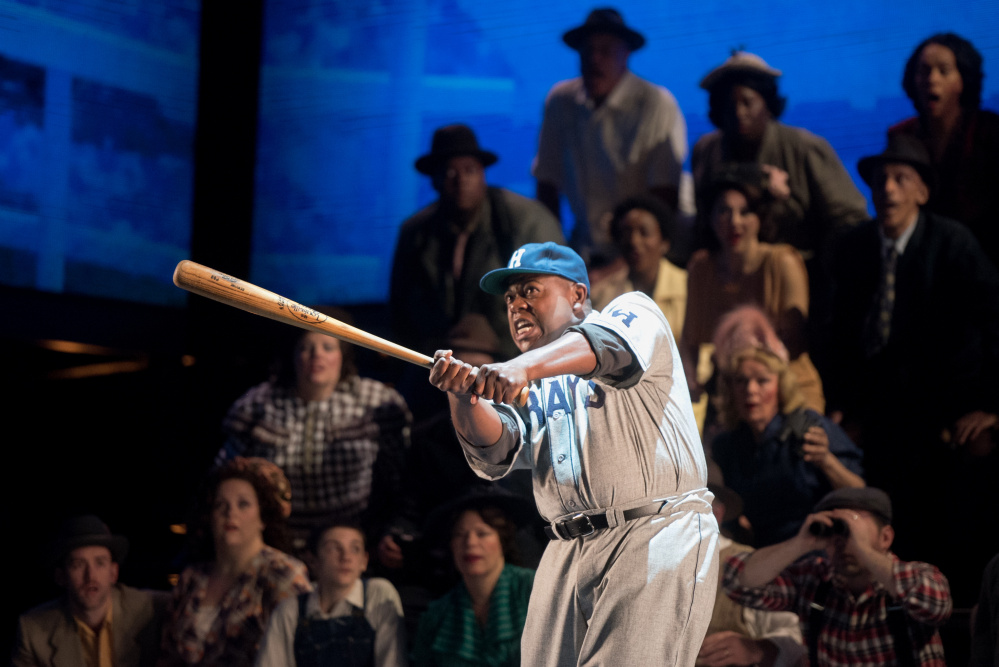
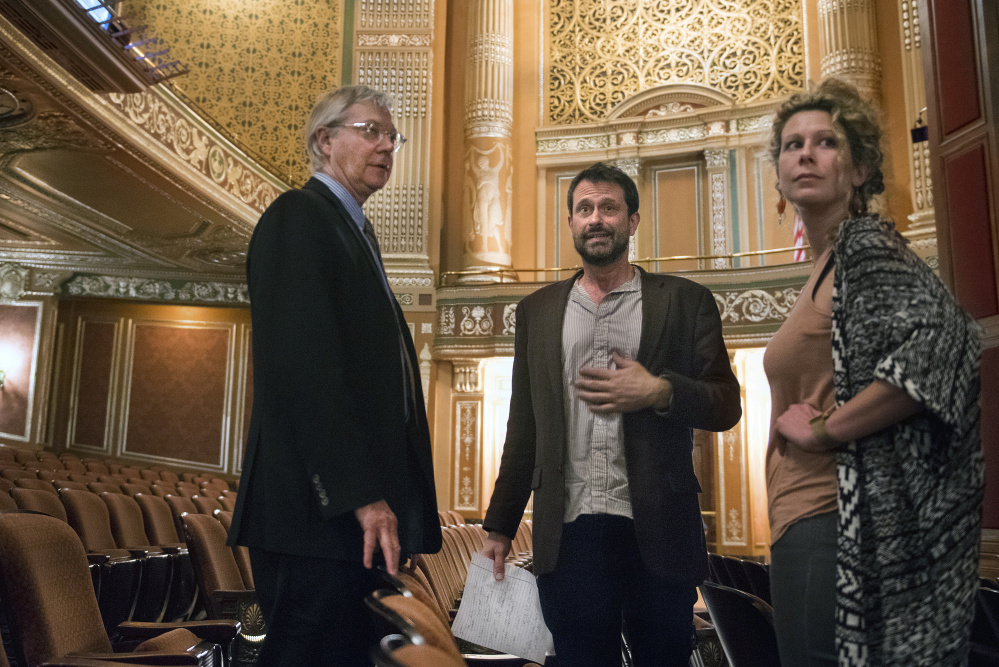

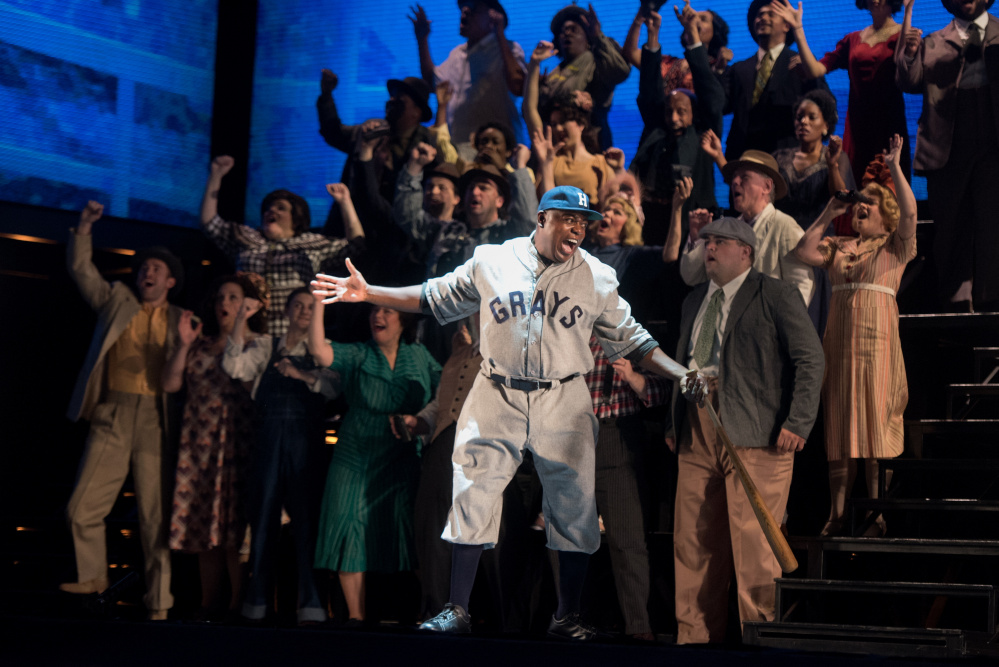
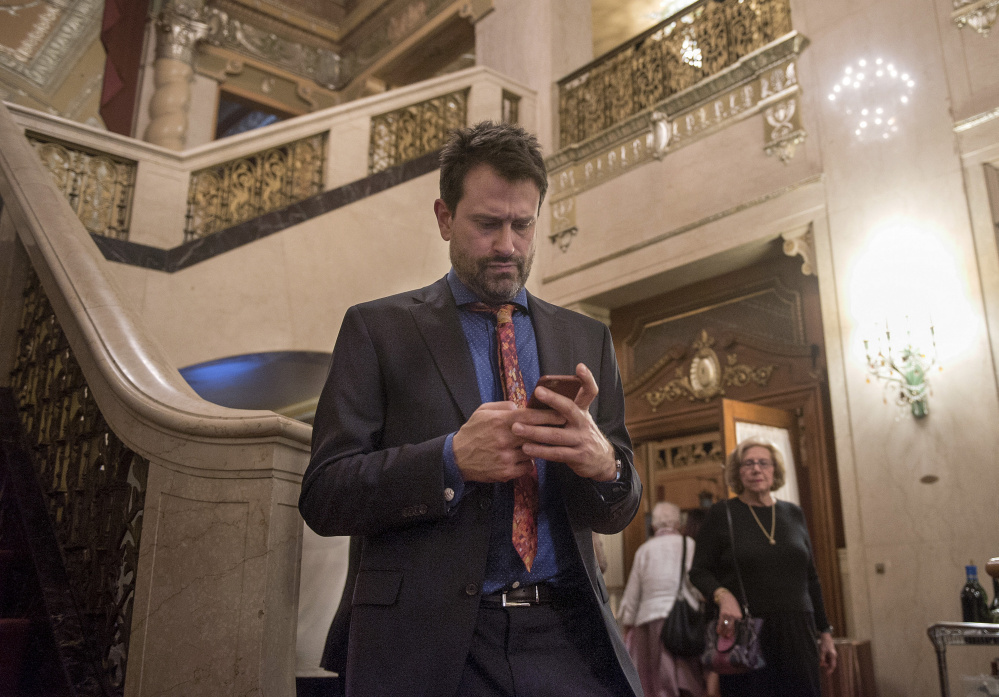


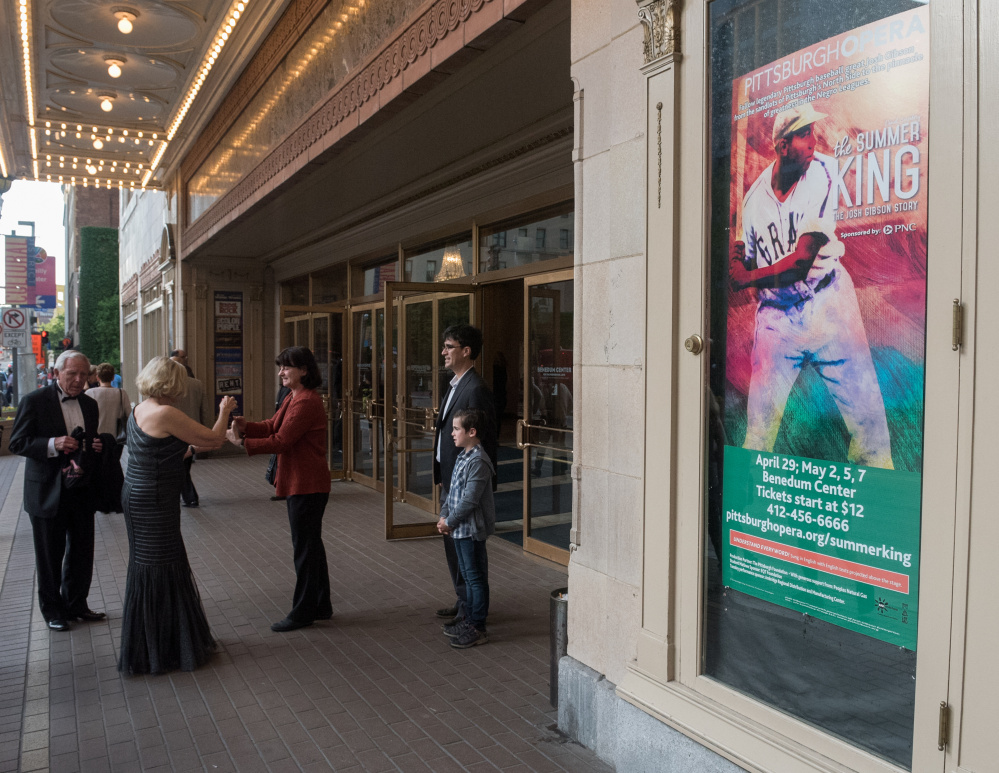
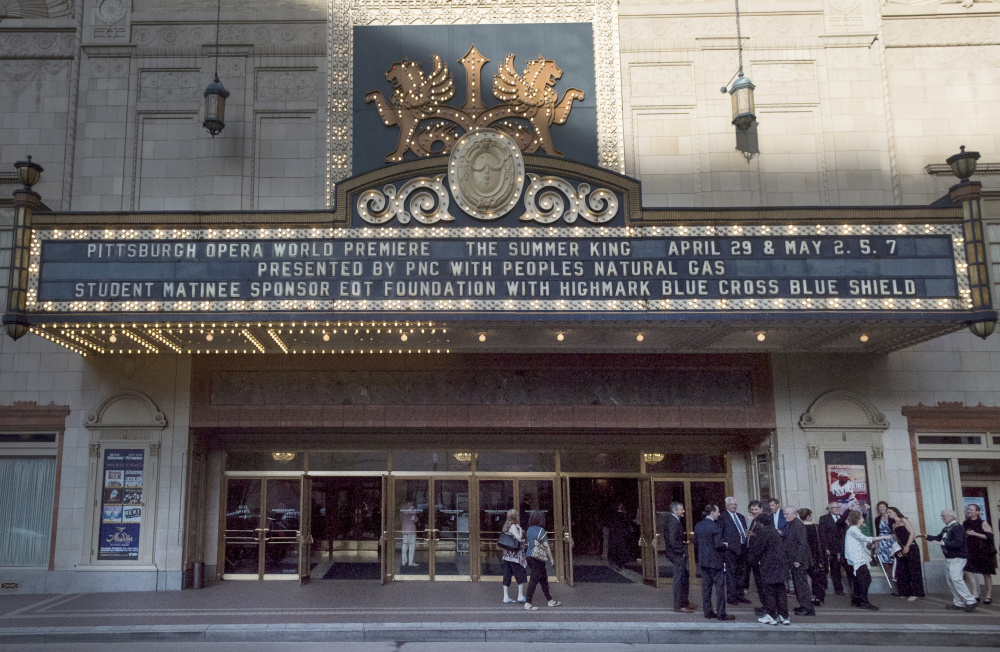
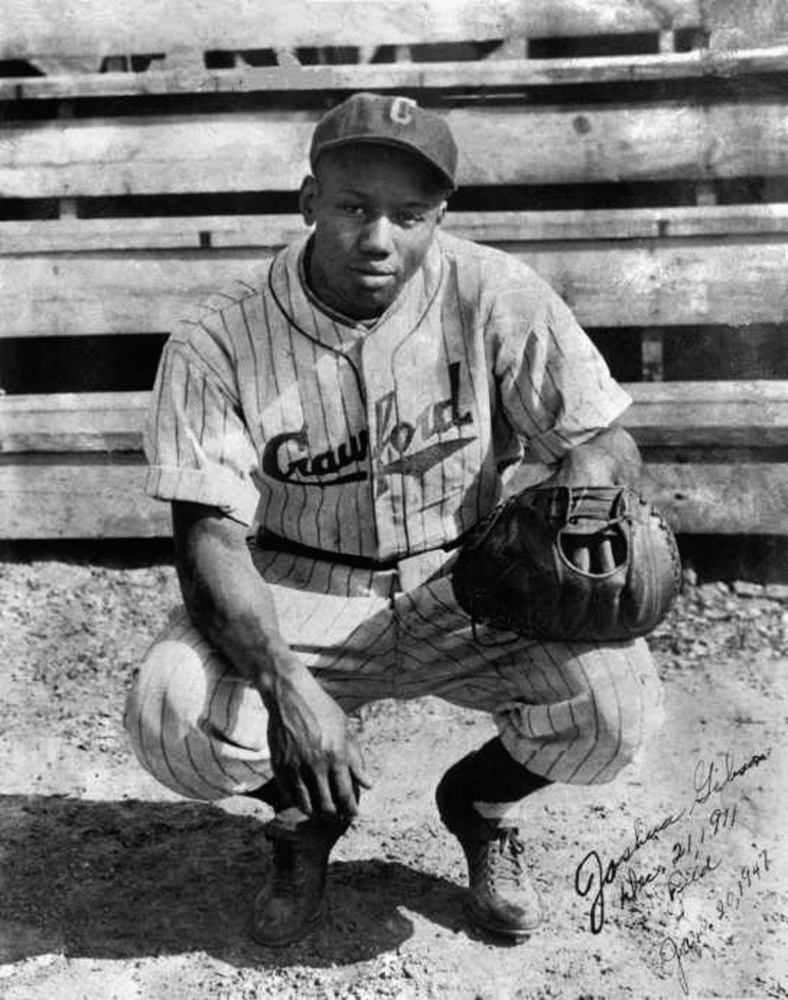
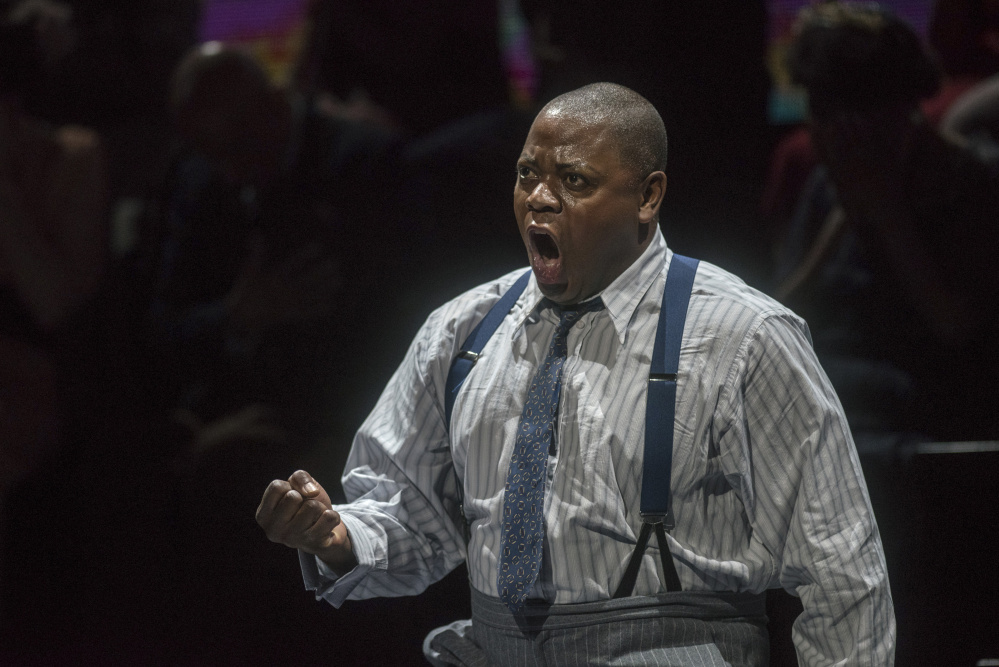
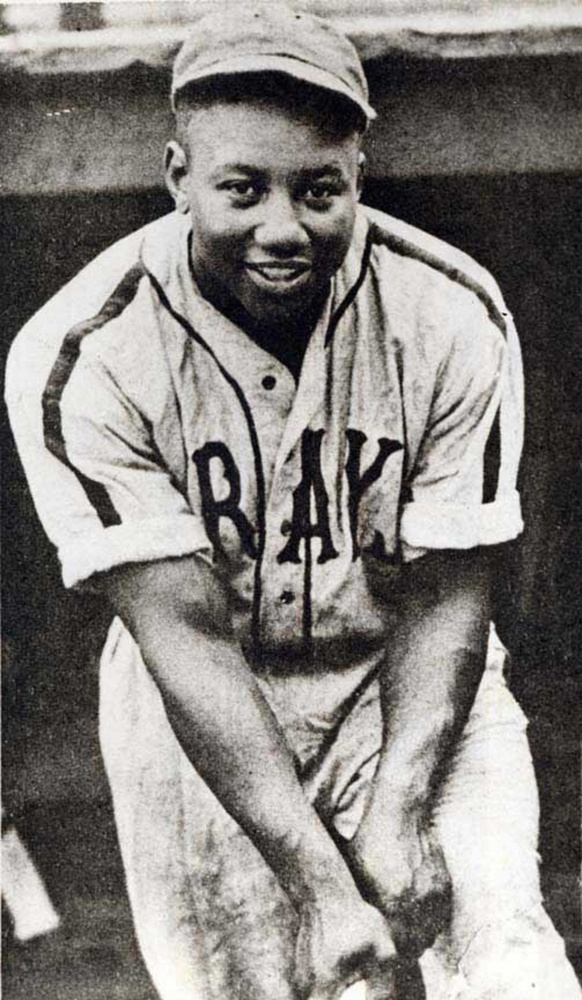
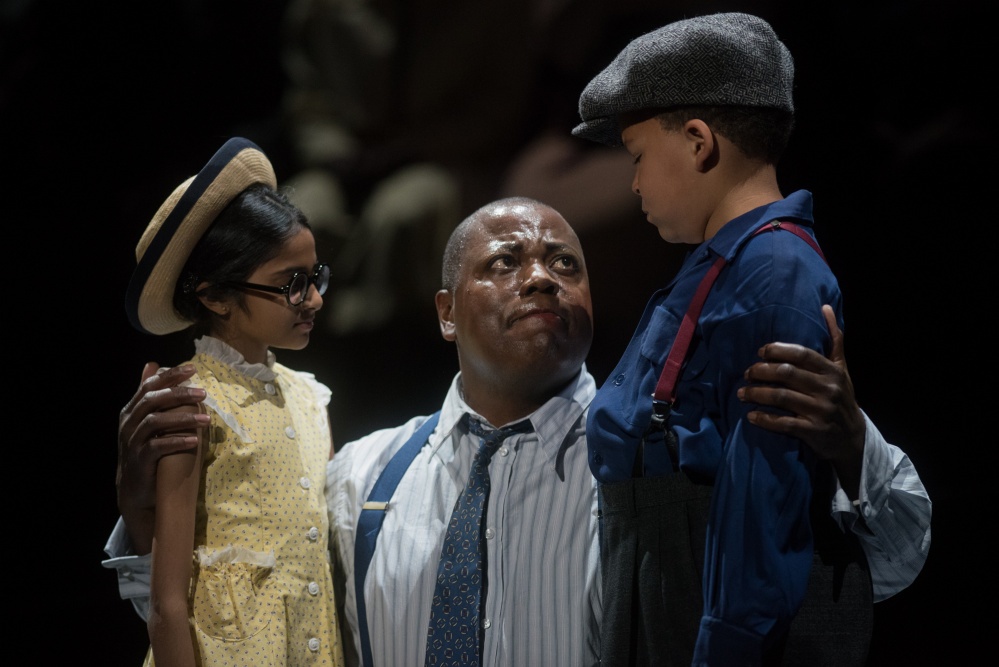
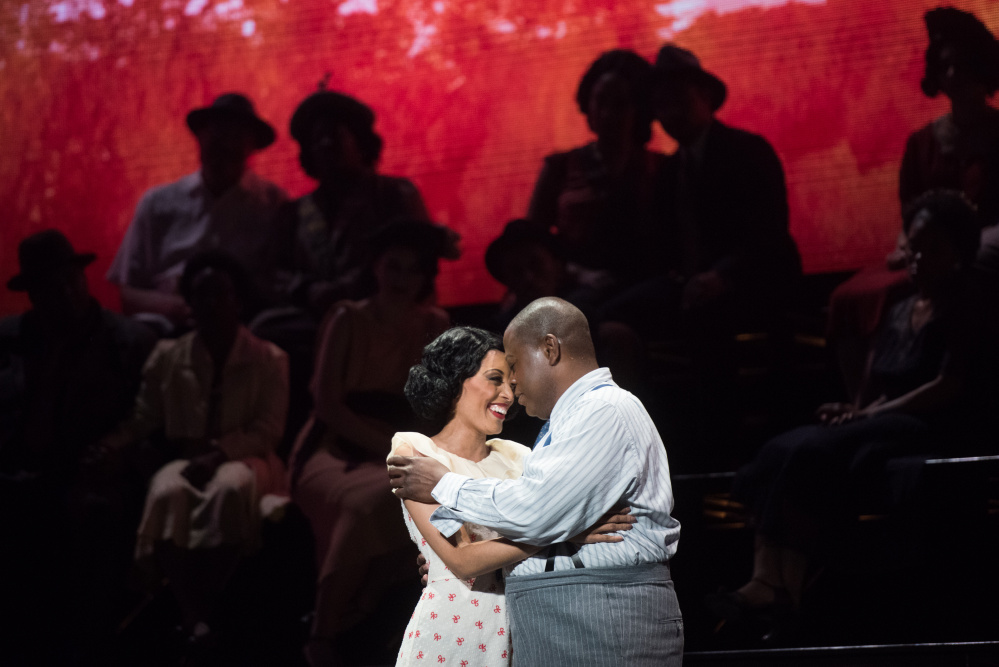
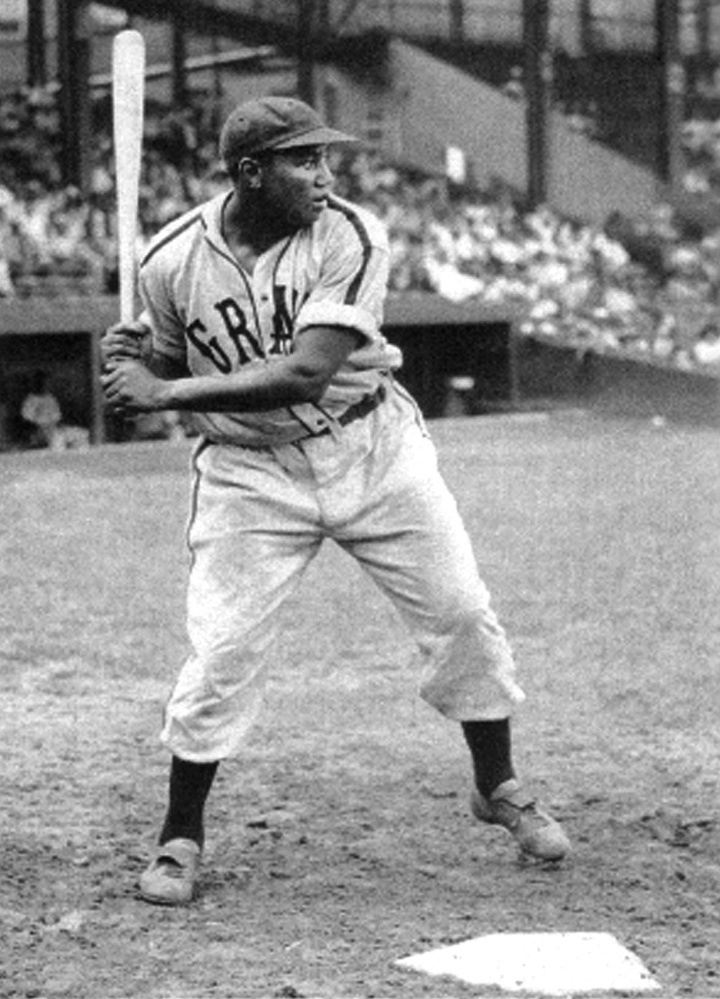

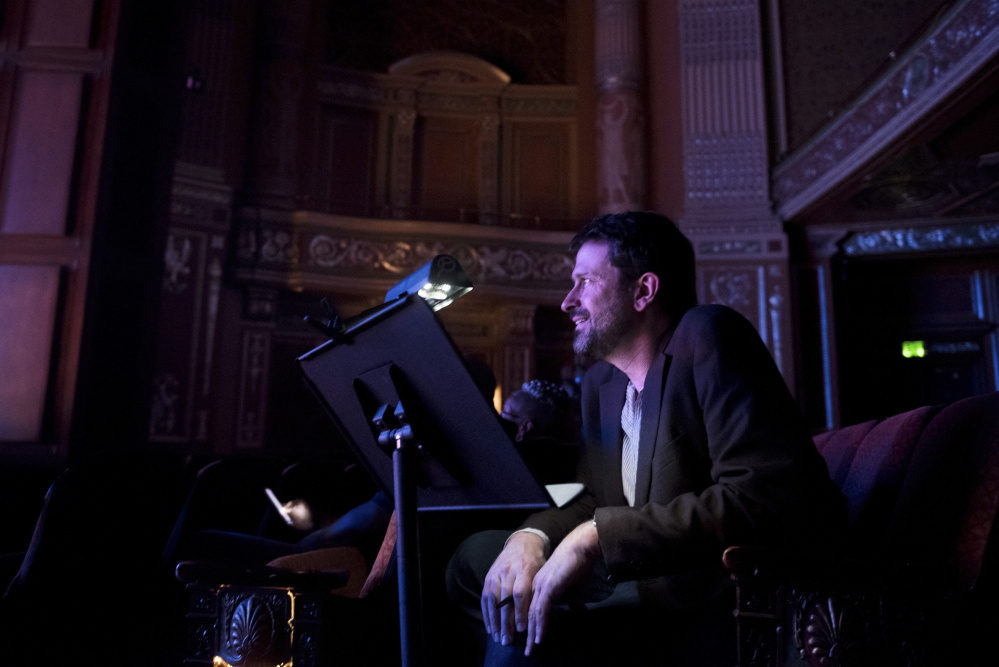
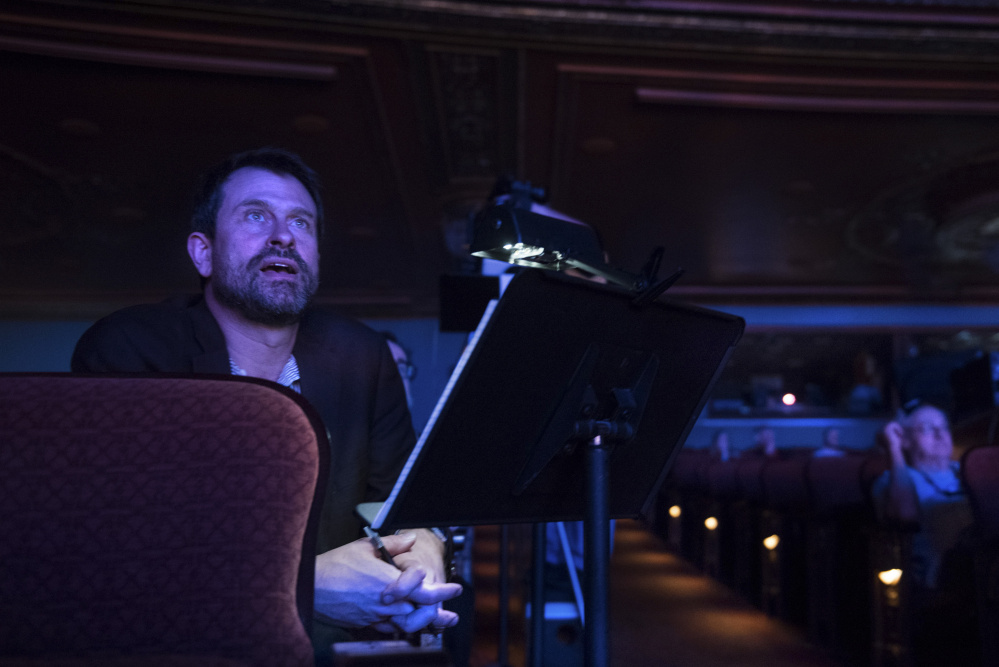
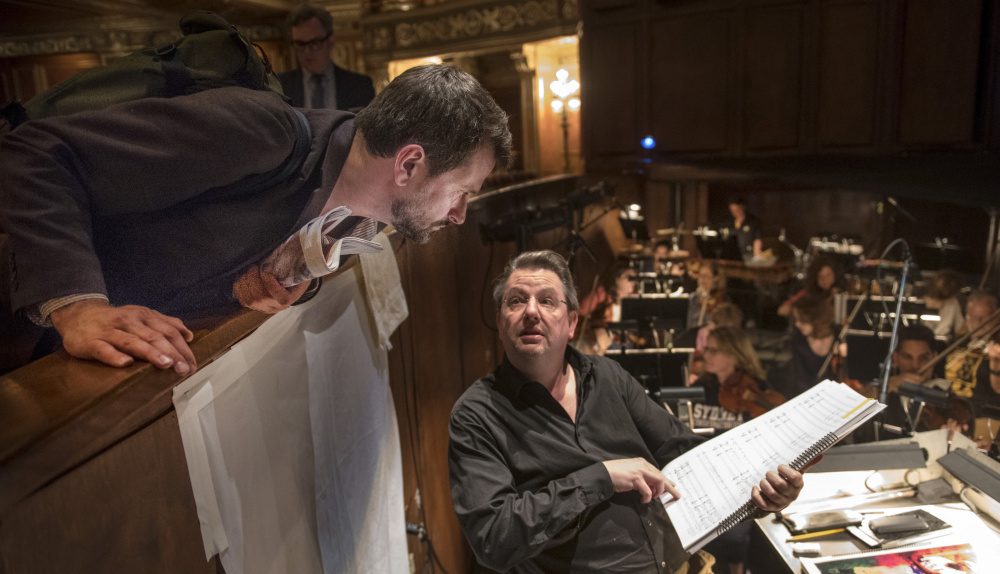

Success. Please wait for the page to reload. If the page does not reload within 5 seconds, please refresh the page.
Enter your email and password to access comments.
Hi, to comment on stories you must . This profile is in addition to your subscription and website login.
Already have a commenting profile? .
Invalid username/password.
Please check your email to confirm and complete your registration.
Only subscribers are eligible to post comments. Please subscribe or login first for digital access. Here’s why.
Use the form below to reset your password. When you've submitted your account email, we will send an email with a reset code.